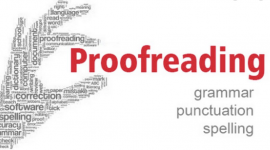13 Aug
2019
It’s All About Clarity: 5 ways grammar errors can cause confusion
Find grammar nerds annoying? You’re not alone. Reasons for being ‘anti-grammar’ range from a strong dislike of being corrected through a dislike of people we consider ‘nit-picky’ to a feeling that obsessing over grammar stymies the creative flow.

In all fairness, these are all reasonably valid reasons. Unfortunately, as an editor, it’s the errors in grammar or punctuation that leap out at me, even when reading an otherwise excellent piece of writing. I’m likely comparable to the woman (I feel this type is almost always a woman, though men may display similar characteristics in other circumstances) that walks into a seemingly immaculate house and immediately notices (and comments on) the one tiny area that has somehow escaped the cleaner’s eagle eye. Sadly, it’s a disadvantage of the editing profession; we’re trained to look for the faults; I can read an entire article, agreeing or disagreeing with its concept, I can find said article fascinating, but I can barely constrain myself from commenting on one tiny grammatical error contained therein. I know, I know, this may make me a terrible person…
However, in defence of grammar nerds, my general explanation is that grammar brings clarity. Ungrammatical sentences can all too often be somewhat ambiguous and – especially when writing for business purposes – ambiguity or confusion is simply unacceptable.
5 examples of ambiguity resulting from misuse of grammar/punctuation:
1. Misplaced modifiers
The attached photograph was taken of our new office building opened by the mayor this morning.
If the mayor opened the building this morning, all is well. However, if the photograph was taken this morning and the mayor opened the building last week, it’s misleading.
This ambiguity can be rectified by simply adding punctuation:
The attached photograph was taken of our new office building, opened by the mayor, this morning.
(Simply adding parenthetical commas clarifies.)
2. Unclear pronouns
David brought a friend to the party and he stayed really late.
Who stayed late? The suggestion is that it was the friend – being the noun immediately preceding the pronoun – but there is no way to be sure it wasn’t David who was the overstayer.
Try:
The friend that David brought to the party stayed really late.
Now it’s clear.
3. Missing hyphens
It’s an old chestnut but still valid: There’s a difference between a small business owner and a small-business owner. Hyphens make it clear.

4. Misplaced apostrophes
Join us for our girl’s night out next Friday.
How many girls are going on this night out? Is this for one special girl?
Try:
Join us for our girls’ night out next Friday.
(And – while we’re at it – when, exactly, is ‘next Friday? Depending on the current day, this is arguably ambiguous – see point #5 below!)
5. Creating ambiguity over essential details
Please meet in our conference room at 7:30 tomorrow for an opportunity to discuss plans for the new building.
Use of ‘tomorrow’ generally necessitates a quick check to see what date the missive was sent – far better to name the day – and date.
Not to mention that it’s unclear whether this is a breakfast meeting or an evening one.
Try:
Please meet in our conference room at 7:30 pm on Thursday, April 24, for an opportunity to discuss plans for the new building.
Clarity, it’s all about clarity!






